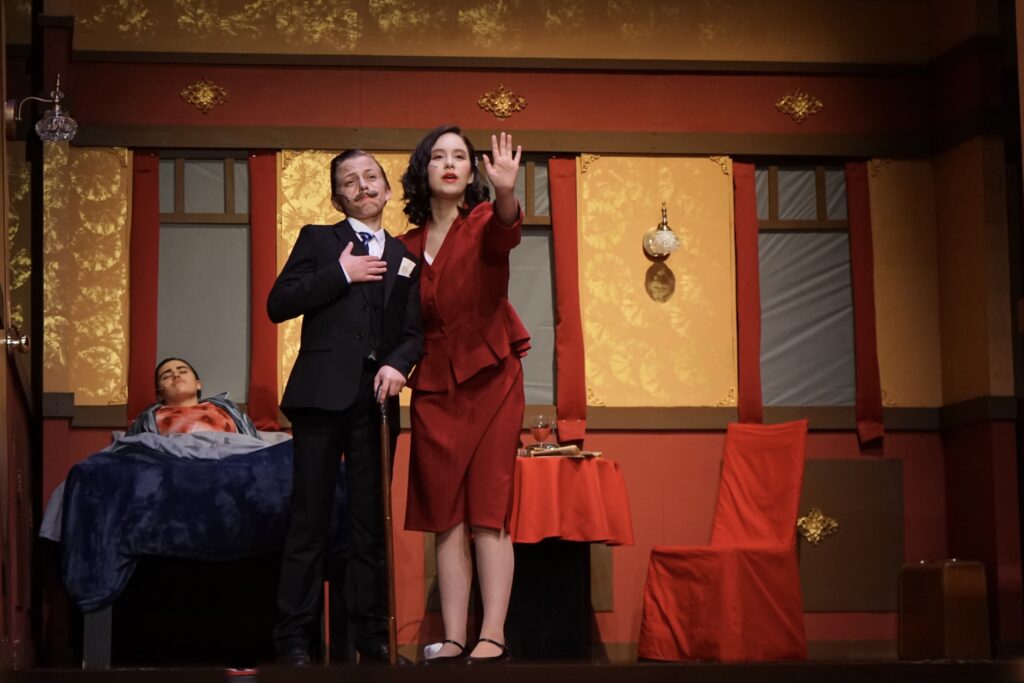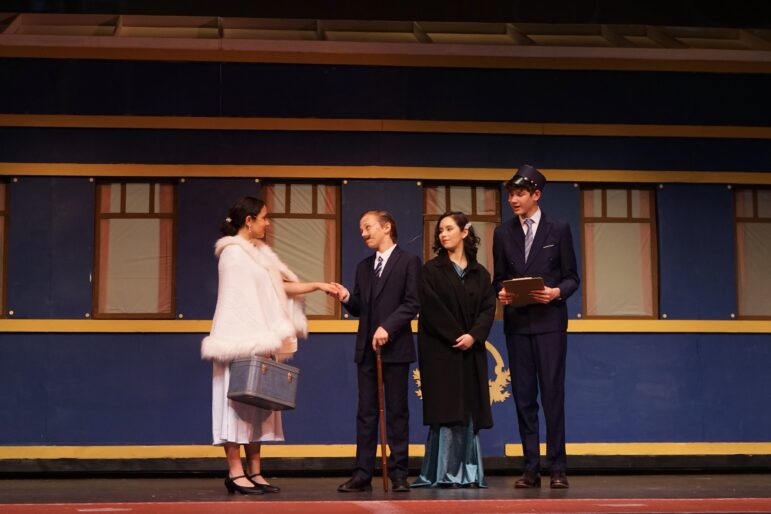

From March 21-24, the curtains opened for “The Murder On the Orient Express,” showcasing Aragon Drama‘s spring play at the theater from 7 p.m. to 9 p.m.
As a train hurtles through the snowy landscapes of Europe, a cast of eclectic characters find themselves entangled in a web of murder. The play is an adaptation of Agatha Christie’s novel “The Murder On the Orient Express,” which was later adapted into a play by Tony-nominated playwright Ken Ludwig.
“It’s about justice and morality, and how you…draw the line between what’s legal and what’s just,” said Advanced Drama student and junior Andrew McColl. “[It’s about] how you can justify certain actions and how you rationalize…something like murder,”.
From a colonel to a princess, all with seemingly airtight alibis, detective Hercule Poirot must discover who has committed the murder on the train.
“Do we think it’s justice that someone killed a bad man out of revenge?” McColl said. “Is it not justice because it’s illegal?[The] themes of morality and justice are especially prominent at the end, but they do permeate throughout the rest of the show as well.”
A departure from the original narrative was the decision to reimagine the character of Monsieur Bouc as female. Senior Maya Efron played Madame Constantina Bouc, originally Monsieur Bouc, the friendly director of the train company.
“[The decision was] just to make it nice and even because we have six boys and six girls in the cast,” said drama director Shane Smuin. “I switched a character and it didn’t really change anything… [if anything, it] made things even more fun and more spicy.”
Actors like McColl, who played the conductor Michael, worked with dialect coach Danielle Levin to master accents.
“We have everyone speaking in different accents, making different vocal choices, [adding] a whole new layer,” McColl said. “I have to speak in a different intonation, a different pitch.”
Actors met with Levin in one-on-one meetings where she gave actors specific tips about phrasing or pacing. She attended read-throughs and run-throughs of the play, coaching actors through breath support and vocal projection.
It was many actors’ first time working with a dialect coach, including Green, who plays Mary Debenham, a British governess.
“It [was] definitely a little nerve-wracking, but it was a lot of fun,” Green said. “The tips were generally helpful in drama.”
However, the play was not without its challenges.
“It’s a murder mystery, so everything has to be really, really exact,” Green said. “Every line is a clue. So we had to make sure we had our lines down exactly. Tech-wise, it had to be really smooth too.”
Murder mysteries generally aim to keep an audience engaged, leading to many audience members who didn’t read Christie’s novel to find themselves solving clues alongside Detective Poirot.
“The plot was really [engaging] and … entertaining,” said freshman audience member Baron Zhang. “I was really paying attention, I didn’t zone out or anything. I was interested [throughout] the entire play. ”
Zhang, who has experience working in theater, reflects on the use of props.
“I used to be a musical actor and we used to have to push the props out,” said Zhang. “It’s a lot of … [effort] to move. I was like ‘Whoa that’s a really big prop.’”
Concluding this performance, the Aragon Advanced Drama class prepares for the upcoming performances of “Mean Girls,” a mini-musical scheduled for May 17.
